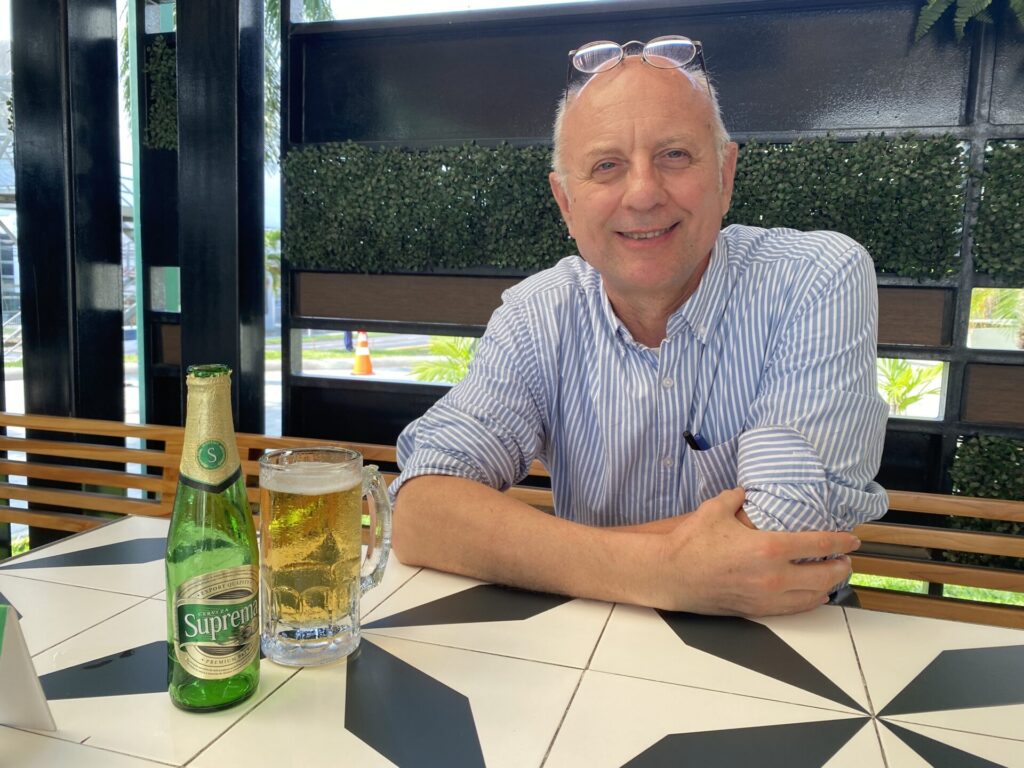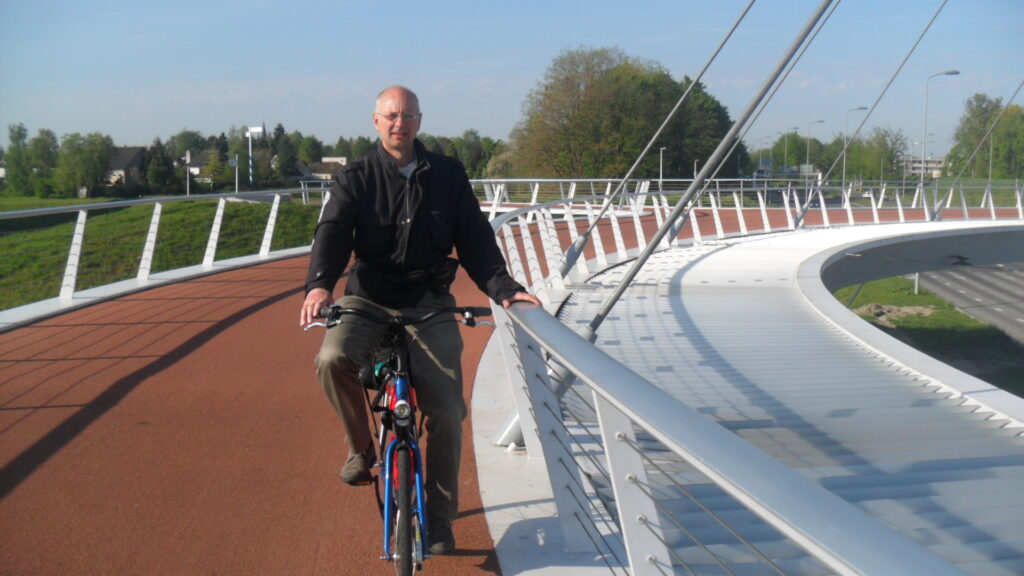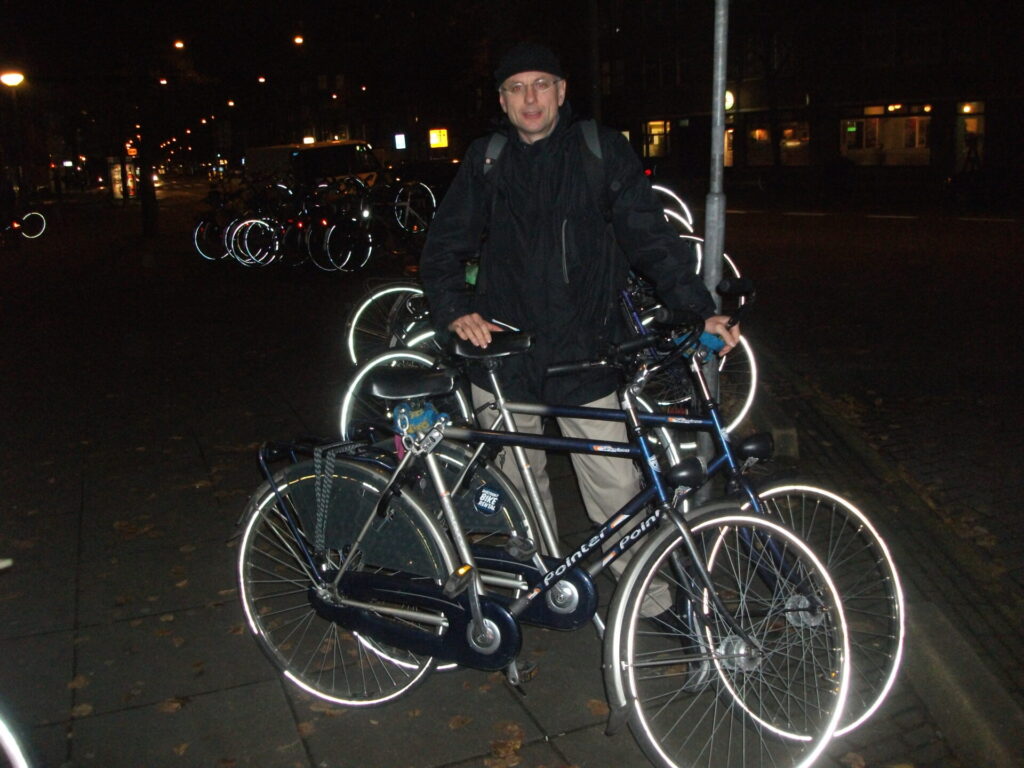Welcome to Mobycon, Kornel Mucsi
We’re excited to announce that renowned Canadian Transportion Enginner/Planner, Kornel Mucsi has officially joined our team as a Senior Integrated Mobility Advisor! With more than 30 years of experience and a PhD in Transportation Engineering, Kornel brings a powerful combination of deep technical knowledge and a clear vision for safer, more inclusive streets. His expertise spans from traffic management strategies & transportation planning to policy development, and his passion for creating cities where people of all ages can move freely and happily aligns with our mission.
A Belief in Sustainable Mobility
As a child, I grew up going almost everywhere on my own by walking, cycling, or taking a bus. However, our children grew up with us parents, driving them almost everywhere. My passion for sustainable mobility stems from my belief that driving children to school, friends, and activities is not good for their health and social development, for your wallet, or for our environment.
The Dutch say that everybody has the right to get home alive. I would add that everybody should have the right to live an everyday life without the need to drive a car. About 30-40% of society does not drive a car, shouldn’t we build cities for them too?

Inspiration & Action
I have been interested in transportation, all aspects of it, from a very early age. As a teenager, I tinkered with motorcycles (to be honest, I mostly damaged them) and eventually became a certified mechanic and professional truck driver. I still enjoy similar hobbies, such as fixing things, woodworking, and gardening, but I transitioned to studying Transportation Engineering at the University of Novi Sad (formerly part of Yugoslavia). This was followed by a master’s studies at the University of Westminster (formerly the Polytechnic of Central London), where I focused on Transportation Planning and Management.
When we emigrated to Canada in the 1990s, I wanted to continue my studies at the University of Toronto. However, after running out of resources (both energy and money), I walked away with another master’s degree, focusing on traffic safety. However, I eventually returned and, years later, continued my PhD studies while working and graduated in 2009 from Carleton University. I focused on policy, performance evaluation, and the technical aspects of multi-modal traffic management.

While living in Europe, I mostly walked, biked, or took transit. I did have a car, but most of the time, driving was not the most practical choice. Ironically, when I moved to Canada, I was actually excited to drive. I liked the idea of commuting by car. And yes… that dream came true. After getting my first full-time job in Ottawa, I enjoyed commuting 8 km with my V8 Oldsmobile.
I even had a free parking spot with my name on it. “How great is that?” I thought at the time. But three years in, I decided to bike to work one day to give it a try. After the 8 km ride, I was so exhausted I had to take the bus back home.
That moment opened my eyes. I hadn’t realized how much regular car commuting had impacted my fitness or how powerful everyday cycling could be. I missed biking. And once I got back into it, I never really stopped.
For over two decades now, I’ve been cycling or walking to work (with the occasional transit ride in winter).
Dutch Mobility, Adapted to North America
One of the biggest takeaways I have learned while working on mobility projects is that sometimes the public is ahead of city staff and decision-makers, or vice versa, making the public’s acceptance of new designs more difficult. Consultants need to develop an effective communication and implementation plan, allowing for a clearer understanding and better conflict management.
Another essential skill is understanding the steps and phases of managing change. Say you have a unique, brilliant idea, and you’re convinced it’s great. But that doesn’t mean others will immediately see it the same way.
Our thinking evolves as we’re exposed to new ideas. Recognizing these stages helps you shape your message, manage expectations, and avoid burnout or frustration along the way.

In my view, Mobycon’s strength is the combination of its international, primarily Dutch, experience and the understanding of the specific local challenges. Dutch cities ran out of space for cars decades ago. They realized the necessity of resolving traffic congestion, safety, & air pollution problems and changed the approach to transportation & city building years before North American cities started to do it.
Directly copying Dutch approaches may not be feasible, but there are many aspects that could be adopted in our environment with some potential modifications. As a result of collaborating with Mobycon on previous projects throughout the past decade before joining their team, the Mobycon philosophy of urban transportation is familiar and inspiring to me. I am thrilled to work with people who share similar values and objectives and help create positive change in North America and beyond.
Interested in discussing upcoming projects or opportunities in your community? Please reach out. My colleagues and I would love to help!

